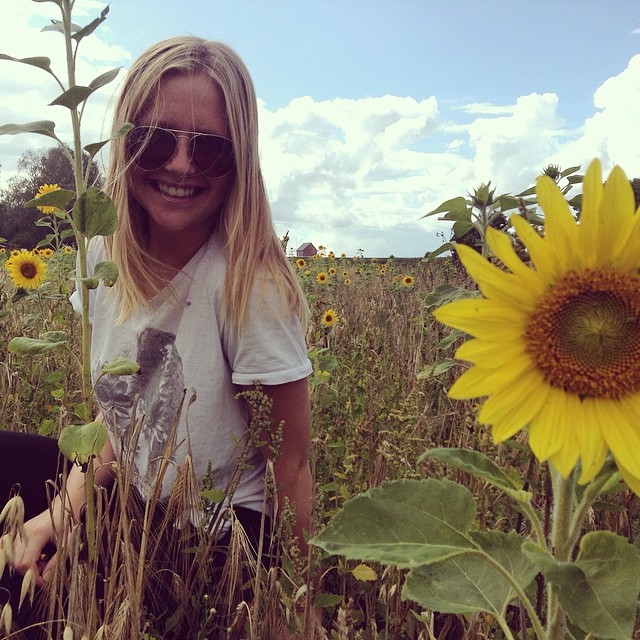The Naked Truth
How a makeup junkie stripped off to expose what’s underneath our addiction to cosmetics.
Last week, the singer Colbie Caillat released a music video that captured international media attention. The song, titled ‘try’, was a call to arms that urged women “not to try so hard”. The reason the video resounded through the din of popular culture was that it featured a very rare creature: a star without makeup. By singing straight to camera, a fresh faced Caillat posed a challenge to the entertainment industry to rethink the standards of beauty that it espouses. The video marks a trend in popular media towards more realistic, organic images of women – a movement epitomized by the trending #nomakeupselfie. However, can we bare all whilst maintaing our professional face or do we need to wear make-up in the workplace?
Since the age of 14, a generous helping of foundation and mascara have been my daily bread. In fact, in the last few years it was a rare morning that I would eat breakfast without a full face of make-up. I took an active interest in beauty products. So when I travelled I took note of the bronzed skin of the Brazilian girls on Copacabana beach l. I admired the bright complexions of the Swedes. I was intrigued by the classicism of French women and enchanted by the kohl rimmed eyes of Moroccans. I met, photographed and gawked at a rainbow of beautiful women, and realised that beauty is a spectrum colored by relativity. Although my ideals of beauty changed, the contents of the cosmetics case that I lugged around with me stayed the same. So, for the sake of new experiences and lighter luggage, I threw the entire case away. Three months later, I have learnt a few things that have led me to believe that a make-up free face could be an asset, rather than a hindrance, to our careers. Hereafter, five lessons that I have learnt from wearing no make-up.
1.
Last Month, the Daily Mail printed photos of Vanessa Hudgens, smiling as she left the gym under the headline “More Hobo Than Boho”. A week later, the NY daily news reported the hard hitting fact that Blake Lively had been “Caught without Make-up!”. Whilst we may roll our (perfectly smokey) eyes at this fluff, these stories do in fact reveal an important truth: wearing make-up is considered a basic standard for women. As kids, Disney movies taught us in soaring melodies to question the status quo. As adults, it would pay to sing to the same tune. Going nude-faced reminded me of the importance of de-constructing media standards of beauty, success and femininity. In contemporary society – where women in the US are on average paid 77% of men’s earnings – it is important that these questions permeate the workplace.
2.
Our Mothers and Tumblr like to remind us that “beauty is only skin deep”. Yet do we really want our beauty products even sinking that far? When it comes to food we are told to avoid anything with ingredients on the label that we can’t pronounce. Three months without make-up got me thinking the same way about what I put on my skin. The rules by which we stock our pantry are applicable to our cosmetics case. When we are our healthiest version of ourselves, both inside and out, we naturally perform better in the workplace.
3.
“You look good tonight”. How often have you deflected that compliment with a shrugged shoulder or an “Oh, this old thing?” When you don’t wear makeup you present your true face to the world and you learn to take compliments to heart. Like a true gift, you should never give a compliment back. Learning to accept compliments gracefully is a handy skill within the workplace. We are taught to focus on handling constructive criticism, but a graceful approach to positive feedback is also an attribute that will be noticed by your colleagues.
4.
It’s an accepted adage that we are what we eat. In the same vein, going without make-up taught me that we look how we feel. I would like to think that I wore make-up to, as the advertisements tell us, “enhance my natural beauty”. However, a quick look through my cosmetics case would have shown you that most products were aimed at coverage. Science tells us that universal markers of beauty (clear complexion, bright eyes, symmetrical features) are evolutionary determined signs of good health. We use make-up to cover up our perceived flaws but in doing so we address the symptoms rather than the cause. Tired eyes? Sleep will fix that. Dull skin? Chances are that you are missing out on some essential nutrients. If we treat our problems at their source we can recognise and address some issues that could be affecting our work as well as our skin.
5.
Do you remember the first time that you experienced make-up? Chances are that you ‘played’ with make-up as a kid. Play is an essential element of make-up, one that grownups tend to overlook. I would be the first to admit that at the end of three months I missed make-up. I no longer felt like I needed to cover up perceived flaws, yet I missed experimenting with Twiggy lashes and Marilyn lips. Make-up can give us a sense of creating, and recreating, the person that we want to be on a daily basis. As an employee that ambition should be a valued attribute.
Caillat’s music video might have asked women not to try so hard, but in truth we should be trying harder. We should be constantly questioning standards of beauty both within the media and within the workplace. Once we strip away the coverage we can discover our best professional asset: our authentic self.
Photocredits. Top – Alexandra Lembke. Below – Colbie Callat, “Try”.
This entry was posted by in Style

